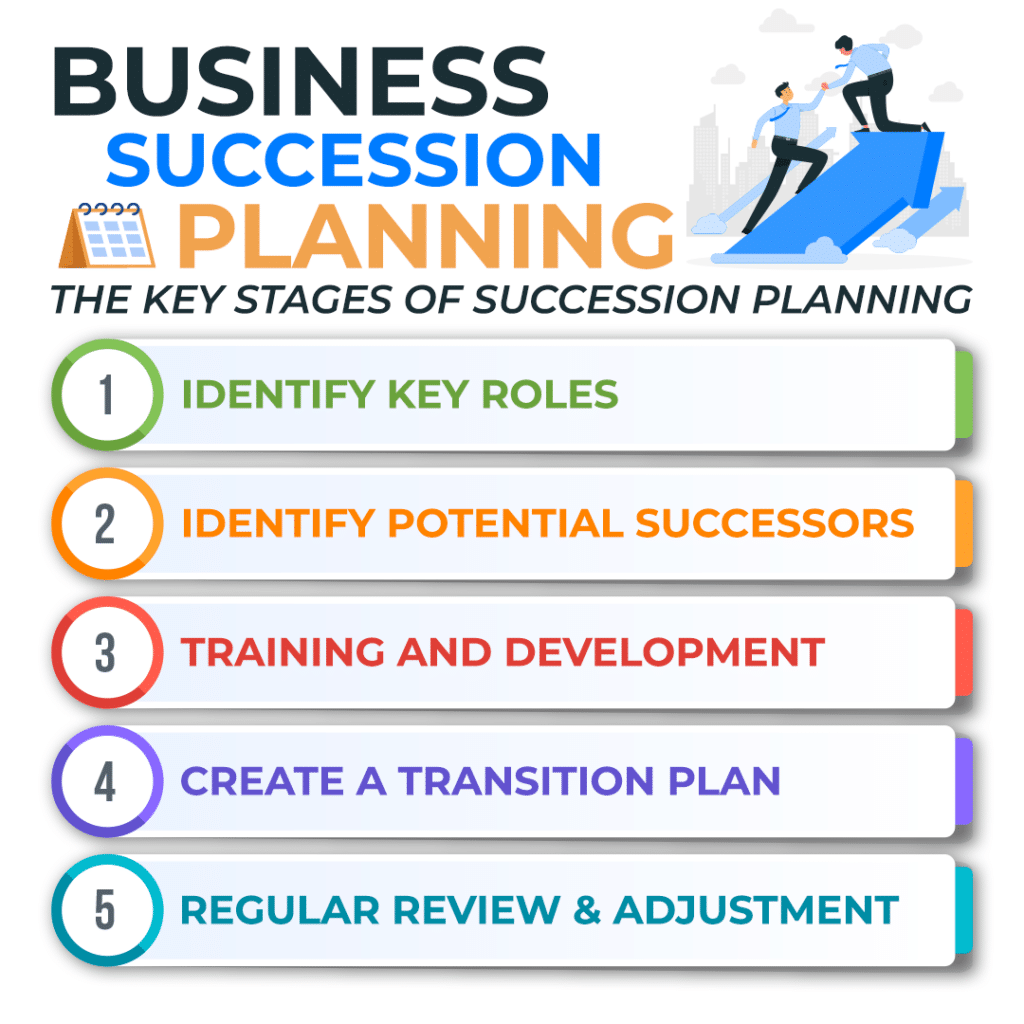A Comprehensive Guide to Business Succession Planning for Canadian Business Owners
Building a Robust Business Succession Plan in Canada
As a Canadian business owner, may be at the point in which your business is becoming a thriving enterprise. However, have you considered the future of your business once you step away? Business succession planning is a vital step to ensure a smooth transition of ownership, sustaining your business’s stability and prosperity. In this blog, our CPA accounting firm will provide an insightful roadmap for crafting a business succession plan. We will delve into the stages of succession planning, explore its merits, and emphasize its significance for small businesses in Canada.
Why Business Succession Planning Matters
Succession planning involves preparing for the transfer of leadership and ownership within your company. Whether you intend to retire, sell, or pass the baton to family members or employees, a meticulously crafted plan can make all the difference. Here’s why business succession planning is essential:
- Seamless Transition: A well-executed business transition plan ensures the smooth transfer of responsibilities, averting disruptions to your business’s operations.
- Preservation of Legacy: If you’ve poured your heart and soul into your business, safeguarding its legacy and values is paramount. Succession planning ensures your legacy remains intact under new ownership.
- Tax Efficiency: Effective succession planning in Canada can minimize tax liabilities, allowing you and your successors to retain a more substantial portion of your business’s value.
The Key Stages of Succession Planning
Crafting a business succession plan encompasses several critical stages:
- Identify Key Roles: Determine the pivotal positions critical for your business’s functioning and prosperity. These could include leadership roles, key management positions, or specialized skill sets.
- Identify Potential Successors: Evaluate potential successors—be it family members, existing employees, or external candidates. Assess their qualifications, skills, and commitment to the business.
- Training and Development: Invest in training and development programs to equip your successors with the necessary skills and acumen. This may include mentorship, leadership training, and skill enhancement initiatives.
- Create a Transition Plan: Develop a comprehensive plan detailing the transfer of ownership and responsibilities. Include well-defined timelines, legal documentation, and financial arrangements.
- Regular Review and Adjustment: Routinely revisit and update your succession plan to accommodate evolving business or personal circumstances.
The Business Succession Planning Guide
Now, let’s delve into the practical steps for creating a business succession plan tailored to your Canadian small business:
Step 1: Evaluate Your Business
- Assess your business’s strengths, weaknesses, and areas necessitating improvement.
- Determine your business’s current market valuation.
Step 2: Identify Potential Successors
- Pinpoint individuals to assume control of your business, whether it’s family members, employees, or external buyers.
- Scrutinize their qualifications and readiness for ownership.
Step 3: Develop a Training and Transition Plan
- Provide tailored training and mentorship for your chosen successor(s).
- Create a well-structured timeline for the transition, ensuring a seamless handover of responsibilities.
Step 4: Financial Planning
- Collaborate with a CPA or financial advisor to assess the tax implications tied to the transition.
- Ensure you have a comprehensive estate plan in place.
Step 5: Legal Considerations
- Engage legal experts to draft vital legal documents, such as buy-sell agreements and wills.
- Address any industry-specific regulatory requirements.
Step 6: Communication is Key
- Transparently communicate your succession plan to family, employees, and key stakeholders.
- Address any concerns or queries they may have.
Step 7: Regular Monitoring and Adjustment
- Routinely review and refine your succession plan, adapting it to changing circumstances.
- Ensure alignment with your evolving business objectives.
Business succession planning in Canada can indeed be intricate, but its importance cannot be overstated. Don’t procrastinate—commence planning today to ensure a seamless transition of ownership and ongoing prosperity for your small business.
Advanced Tax specializes in assisting Canadian business owners with their tax and accounting needs, including business succession planning. Reach out to us today to initiate your small business succession plan and secure the future of your enterprise.
